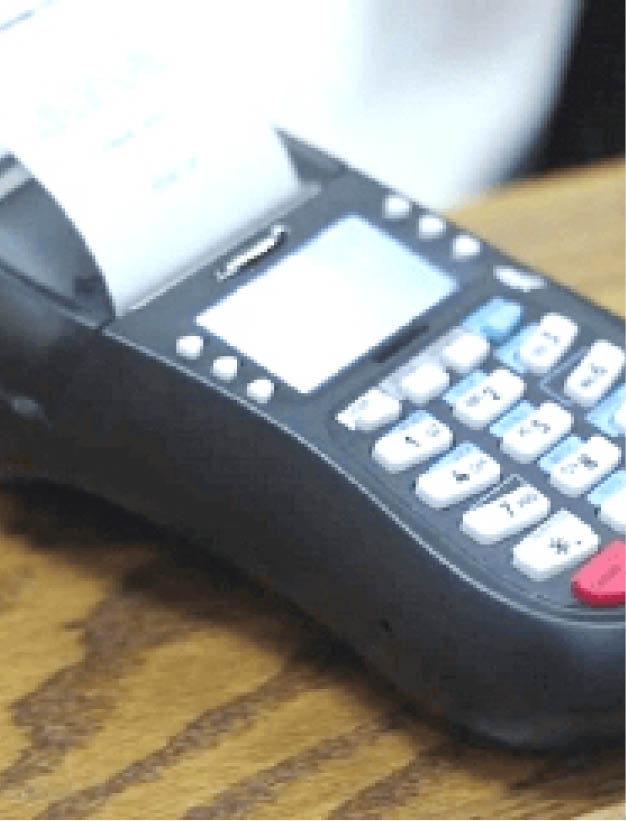By Philip Shimnom Clement
In the last five years, Point of Sale (PoS) transactions have become the new normal in Nigeria as bank customers are gradually embracing the new technology, which saves them the time and energy they would have spent in the bank to either withdraw or deposit cash.
PoS machines and vendors are gradually in every nook and cranny of the country, both in the urban and rural areas.
- 2023: I’ll beat Tinubu, Amaechi, Okorocha at APC presidential primary – Yahaya Bello
- How Buhari Resolved APC Crisis In 2 Weeks While Insecurity Festers
The acceptance of the new technology peaked in 2020 during the COVID-19 era, where banks were completely shut out to customers, leaving them with the only option of using alternative digital payment platforms to carry out their transactions.
According to the Nigeria Inter-Bank Settlement System (NIBSS), over 380 million PoS payments were registered in Nigeria, which translated to a total transaction value of N2.8 trillion.
The NIBSS had also stated that these transactions were highly driven by the Federal Capital Territory (FCT), Lagos, Rivers, Oyo and Delta states.
Fast track to 2021; N6.43 trillion was received as POS transactions, hitting the highest ever amount in a single year as acceptance for digital means of payment is gradually taking over.
According to a data from the NIBSS, PoS transactions in December 2021 alone hit N699.75 billion, which is the highest ever recorded in a single month.
Similarly, the volume of PoS transactions in the country skyrocketed by 50 per cent to 982.8million in 2021 compared to 655.8million transactions recorded in the previous year.
Checks by Daily Trust on Sunday have shown that when the Central Bank of Nigeria (CBN) introduced PoS as an alternative payment platform in 2012, the geometric growth and acceptability of the platform was significant. For instance, in its first year of introduction, transactions stood at N46.86 billion. However, 9 years later, data from the NIBSS as at December 2021 indicated that PoS transactions had risen to N13.67 trillion, explaining the level of growth and acceptance the payment platform had attracted since 2012 when it was first introduced by the CBN.
Factors behind the surge
The acceptance of PoS transactions in Nigeria can be attributed to the desire of citizens to embrace digital financial platforms, which have improved over time.
The game changer was at the peak of the COVID-19 when Nigerians were under lockdown and left with no option than sought out ways of performing financial transactions from their homes and offices since banks were no longer operational.
At that time, many Nigerian youths took advantage of the situation to create mobile banks and PoS shops in all the 36 states of the country, which turned out to be a source of succour for people to perform withdrawals, deposits and transfer of funds.
Also, the large volume of spending associated with the yuletide season is another reason why PoS transactions will keep surging. This is because of the high rate of shopping, travelling and merrymaking that take place during such periods.
Similarly, Automated Teller Machines are usually stocked with little cash and usually insufficient for people to meet their desires.
Consequently, high yuletide expenditure is always reflected in the consumer price index and report from the National Bureau of Statistics virtually every year. For instance, the NBS inflation report for December 2021 showed a figure of 15.63 per cent, breaking the 8 consecutive months of downward inflationary trend.
Cheques gradually displaced
In another development, the convenience of using the PoS service at any time of the day has served as a reliable alternative payment platform rather than physical cash payments with the high level of insecurity witnessed in the country. This is owing to the fact that banking halls close early in the day. As such, customers prefer to use the service rather than hold on to their physical cash.
Consequently, it has led to a decline in the conventional use of cheques by customers to withdraw money inside the banking halls. According to the data from the NIBSS, Nigeria recorded cheque transactions in 2021 valued at N3.22 trillion, a marginal decline compared to N3.27trn recorded in the previous year.
Compared to five years ago, it dropped by 40.2 per cent compared to N5.38trn recorded in 2017, further indicating a switch from conventional methods to digital means, and an indication that Nigerians will sustain the usage of the PoS.
According to the NIBSS, the number of registered PoS terminals in the country rose to 976,898 in 2021, just a little under 1million, compared to 523,488 registered at the same period in 2020.
Implications
The increase in PoS transactions across the country points to the fact that Nigerians are gradually embracing digital penetration in the country. Also, PoS outlets have become a major form of employment for Nigerian youths, helping to bridge the unemployment gap in the country, which currently stands at 33.3 per cent, according to recent figures from the NBS.

 Join Daily Trust WhatsApp Community For Quick Access To News and Happenings Around You.
Join Daily Trust WhatsApp Community For Quick Access To News and Happenings Around You.


